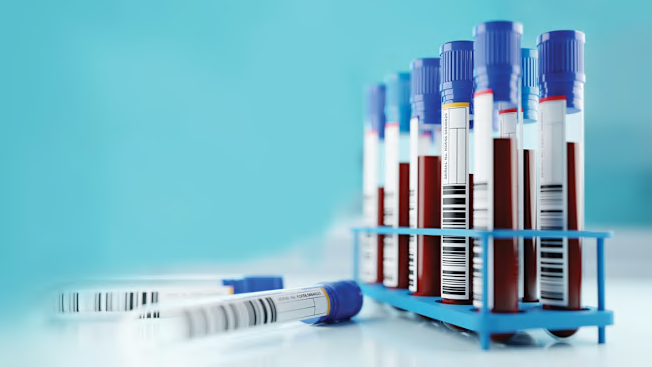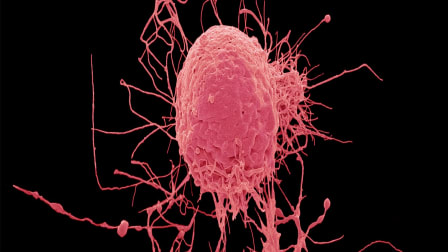The Truth About Blood Tests for Cancer
Companies claim that some screenings can identify dozens of cancers from a simple blood test. Here's what they can and can't tell you.

Screenings for breast cancer and colon cancer can be critical because early detection makes successful treatment more likely. But people often dread them. For many other cancers—including pancreatic and liver cancer—there aren’t widely recommended screenings.
A number of next-generation screenings developed in recent years and sold online could address both of these problems. Companies claim that some can identify cancer or even dozens of cancers from a simple blood test.
New Cancer Tests
Some emerging tests are referred to as multicancer early detection tests, though others target one specific type of cancer. Typically, they test for material that’s shed by cancer cells, says Scott Ramsey, MD, PhD, a physician and co-director of the Hutchinson Institute for Cancer Outcomes Research at the Fred Hutch Cancer Center.
One of the best-known is the Galleri test (available online for $949) made by the healthcare company Grail. It’s marketed as offering early detection for more than 50 cancers. There are many other multicancer tests available too, Etzioni, says, and more in development.
“If these were highly sensitive and could detect cancers at an early stage, that would be a game changer,” Ramsey says. But at least so far, “these tests are falling short.” Current research shows that despite the marketing, most new tests are more sensitive for later-stage cancers, which may be caught in other ways. “The time you’d like to catch cancer is when it’s in a very early stage” and more treatable, he says.
We’ll understand cancer blood tests better in the next few years, Ramsey says. The Galleri test, for example, is being evaluated in a large study in England, which should help determine how good it is at detecting cancers and at what stage, Ramsey says. Eventually, experts will be able to figure out whether these tests find cancer early enough to change survival rates.
Potential Harms
Today, a number of recommended screenings are covered by insurance and may be better than these blood tests. The Shield blood test for colon cancer, for example, recently approved by the FDA, catches just 13 percent of large polyps; a colonoscopy catches about 95 percent. Colonoscopies (as well as cervical cancer checks) can also detect precancerous cells that may not be detectable in the bloodstream yet, according to Gralow. It’s preferable—and often possible—to remove those cells before they turn into cancer.
Some new tests catch only a fraction of Stage 1 disease, Gralow says. A 2021 evaluation of the Galleri test found that it detected just 16.8 percent of Stage 1 cancers. And false negative results, which suggest that you don’t have cancer when you do, are risks that could lead to treatment delays. A false positive result may also lead to invasive follow-up testing, including biopsies (which can present risks) and significant psychological stress and financial burden.
What to Do Now
As research continues, it’s likely that some of these new tests will end up being recommended, especially for people at higher risk, such as cancer survivors, Etzioni says. But for now, they’re not generally advisable even for these groups, Gralow says. Most people should wait until tests are recommended in official guidelines and not just by the people selling them, she says.
Instead, stay up to date with recommended screenings and discuss any symptoms promptly with a physician.
Editor’s Note: This article also appeared in the October 2024 issue of Consumer Reports on Health.




